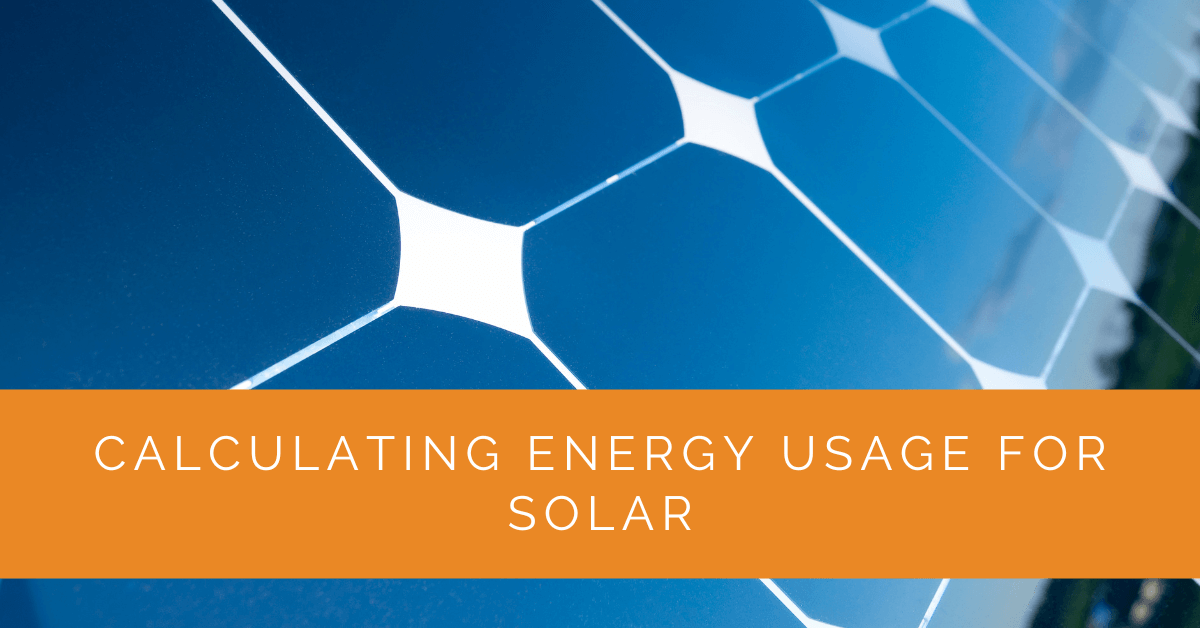Harnessing solar power has become increasingly popular today as individuals and businesses seek renewable energy alternatives. When considering a solar panel system, calculating energy usage is crucial for designing an optimal system size that meets your needs. In this article, we will explore calculating energy usage for solar, understanding solar panel output, and determining the appropriate system size. Let’s dive into the details and unlock the secrets of maximizing solar power!
Contents
- 1 Key Takeaways
- 2 Understanding Solar Panel Output
- 3 How to Calculate Energy Usage
- 4 Factors That Affect Solar Panel Output
- 5 Determining the Solar System Size
- 6 Utilizing Solar Calculators
- 7 Considering Energy Efficiency Measures
- 8 Consulting with Solar Professionals
- 9 Case Study: Optimizing Solar Panel System Size Through Accurate Energy Usage Calculation
- 10 Expert Insights From Our Solar Panel Installers About Calculating Energy Usage for Solar
- 11 Experience Solar Excellence with Us!
- 12 Conclusion
Key Takeaways
- Accurately calculating energy usage is crucial for determining the appropriate size of a solar panel system.
- Factors that affect solar panel output, such as shading, orientation, and panel efficiency, must be considered when calculating energy usage for solar.
- Utilizing solar calculators, considering energy efficiency measures, and consulting with professionals can help optimize energy production and ensure a successful installation of solar panels.
Understanding Solar Panel Output
Solar panel output refers to the amount of electricity a solar panel can generate under specific conditions. To calculate energy usage accurately, it’s important to understand how solar panel output is determined and the factors that can affect it.
Factors Affecting Solar Panel Output
Several factors influence solar panel output, including shading, orientation, tilt angle, temperature, and efficiency. Shading from nearby buildings or trees can significantly reduce solar panel performance by blocking sunlight. Optimizing the orientation and tilt angle of the solar panels towards the sun’s path maximizes their exposure to sunlight. Temperature also affects solar panel efficiency, with high temperatures potentially leading to decreased output. Finally, panel efficiency determines how effectively solar energy is converted into electricity.
How to Calculate Energy Usage
Calculating energy usage involves determining the electricity consumed over a specific period. By understanding your energy consumption patterns, you can design a solar panel system that meets your needs.
Gathering Energy Usage Data
Start by gathering your historical energy bills. Look for the total kilowatt-hour (kWh) usage for each billing period. If your bills don’t provide this information, you can usually find it by contacting your utility provider or accessing your online energy usage data.
Converting Energy Consumption to kWh
To convert energy consumption into kWh, multiply the power rating of the appliances used (in watts) by the hours they are typically in use. Sum up these values for all appliances to obtain the total energy usage in watt-hours (Wh). Then, divide the total energy usage by 1000 to convert it into kWh.
Example Calculation
For instance, if you have a refrigerator with a power rating of 100 watts and it runs for 10 hours per day, the daily energy consumption would be 100 watts x 10 hours = 1000 watt-hours or 1 kWh.
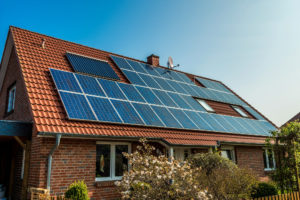
Factors That Affect Solar Panel Output
To accurately calculate energy usage for solar, it’s crucial to consider the factors that can affect solar panel output. Let’s explore these factors in more detail:
Shading
Shading is one of the most significant factors impacting solar panel performance. Even partial shading on a single panel can reduce the output of the entire solar system. Carefully evaluate the shading conditions on your property and take measures to minimize shading, such as trimming trees or adjusting the panel orientation.
Orientation and Tilt Angle
Optimizing your solar panels’ orientation and tilt angle is vital for maximizing energy production. In the Northern Hemisphere, panels should face south for maximum sun exposure, while in the Southern Hemisphere, they should face north. The tilt angle should also be adjusted based on your latitude to maximize the sun’s angle of incidence.
Temperature
While solar panels generate electricity from sunlight, they can be affected by high temperatures. High temperatures can decrease the efficiency of solar panels and, consequently, their output. Ensuring proper ventilation and avoiding excessive heat buildup around the panels can help mitigate this issue.
Panel Efficiency
The efficiency of solar panels determines how effectively they convert sunlight into electricity. Higher efficiency panels can generate more electricity in the same amount of sunlight. When calculating energy usage, consider the efficiency rating of the panels you plan to install and how it may impact overall energy production.
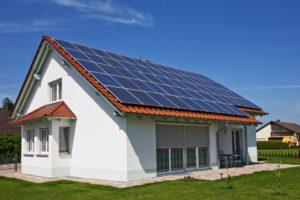
Determining the Solar System Size
Once you have calculated your energy usage and considered the factors that affect solar panel output, you can determine the appropriate size for your solar panel system. Sizing the system correctly is crucial for maximizing energy production and optimizing the return on your investment.
Energy Production Goals
Start by defining your energy production goals. Consider whether to offset a certain percentage of your electricity consumption or aim for complete energy independence. Understanding your goals will help guide you in sizing the system accordingly.
Matching Energy Usage and Solar Output
Compare your calculated energy usage with the estimated solar panel output based on your location and the factors discussed earlier. By aligning energy consumption with solar production, you can design a system that meets your needs and minimizes reliance on grid-supplied electricity.
Solar System Sizing Tools and Calculators
Utilize solar system sizing tools and calculators available online. These tools consider your energy usage, location, solar panel efficiency, and other factors to estimate the optimal system size. Solar calculators provide valuable insights and simplify determining the right solar system size for your specific requirements.
Professional Assistance
For more complex installations or if you prefer expert guidance, consider consulting with solar professionals. They can perform on-site evaluations, consider site-specific factors, and provide personalized recommendations to determine the appropriate system size. Solar professionals have the expertise to analyze your energy needs, factor in efficiency considerations, and design a customized solar panel system that maximizes energy production.
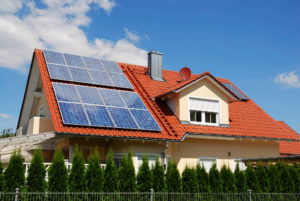
Utilizing Solar Calculators
Solar calculators are powerful tools that simplify calculating energy usage and sizing a solar panel system. These online tools use advanced algorithms and data inputs to estimate energy production, system size, and financial savings. Here’s how to effectively utilize solar calculators:
Energy Usage Data
Input accurate energy usage data into the solar calculator. Use the kWh consumption values you previously calculated. Some calculators may also require additional information, such as the average monthly electricity bill or the number of hours of sunlight in your location.
Location and Sunlight Data
Provide your location information to ensure accurate calculations. Solar calculators consider factors like the number of sunlight hours, solar radiation levels, and weather patterns specific to your region. This information is crucial for estimating solar panel output and optimizing system sizing.
Panel Characteristics
Specify the characteristics of the solar panels you plan to use. This includes their efficiency rating, wattage, and any other relevant details. If you haven’t selected specific panels yet, you can use default values or an average efficiency rating to get an initial estimate.
Analyzing Results
Once you input the required information, the solar calculator will generate detailed results. Review the estimated system size, energy production, and financial savings. Take note of any additional information provided, such as payback period, return on investment (ROI), and environmental benefits like carbon dioxide emissions reduction.
Remember, while solar calculators provide valuable estimates, they are not absolute and should be used as a starting point for further evaluation. Consider consulting with solar professionals to validate the results and get personalized recommendations for your situation.
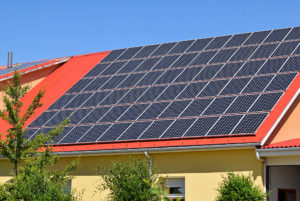
Considering Energy Efficiency Measures
Improving energy efficiency in your home or business is crucial in reducing energy consumption and optimizing the size of your solar panel system. By implementing energy efficiency measures, you can further maximize the benefits of solar power. Here are some key considerations:
Energy Audit
Start with an energy audit to identify areas of energy wastage. An energy audit may involve inspecting insulation, sealing air leaks, upgrading to energy-efficient appliances, and optimizing heating, ventilation, and air conditioning (HVAC) systems. An energy audit helps you understand where energy is being consumed inefficiently and guides you in making targeted improvements.
Efficient Appliances and Lighting
Upgrade to energy-efficient appliances and lighting solutions. Replace outdated appliances with ENERGY STAR-certified models designed to consume less energy while maintaining high performance. LED light bulbs are a cost-effective and energy-efficient lighting option that can significantly reduce electricity usage.
Insulation and Weatherization
Improve insulation in your home or building to minimize heat loss in winter and heat gain in summer. Well-insulated walls, roofs, and windows help maintain comfortable indoor temperatures while reducing the need for heating and cooling. Weatherstripping and sealing air leaks enhance energy efficiency by preventing drafts and air infiltration.
Smart Energy Management Systems
Consider implementing smart energy management systems that allow you to monitor and control energy usage. These systems provide real-time data on energy consumption, enabling you to identify areas for improvement and adjust usage patterns accordingly. Smart thermostats, programmable timers, and energy monitoring devices can all contribute to optimizing energy efficiency.
Behavior Changes
Incorporate energy-saving habits into your daily routine. Simple actions like turning off lights when not in use, unplugging electronics, using natural lighting whenever possible, and adjusting thermostat settings can contribute to significant energy savings.
By combining solar power with energy efficiency measures, you can further reduce your reliance on the grid and maximize the benefits of renewable energy. Implementing energy-saving practices optimizes your solar panel system’s performance, reduces overall energy consumption, and lowers utility bills.
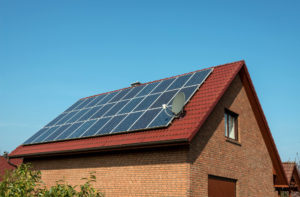
Consulting with Solar Professionals
When calculating energy usage for solar and determining the appropriate system size, consulting with solar professionals can provide valuable insights and ensure accurate assessments. Here’s how solar professionals can assist you:
On-Site Evaluations
Solar professionals can conduct on-site evaluations to assess your property’s solar potential. They analyze roof orientation, shading, and available space to determine the best placement and configuration for solar panels. These evaluations consider site-specific variables and provide personalized recommendations.
Customized Recommendations
Solar professionals can provide customized recommendations for the optimal solar panel system size based on your energy consumption patterns, location, and specific requirements. They consider factors like panel efficiency, local regulations, and financial incentives to design a system that maximizes energy production and aligns with your goals.
Expertise and Industry Knowledge
Solar professionals have in-depth solar industry knowledge and stay updated on the latest technologies, regulations, and best practices. Their expertise helps you navigate complex calculations, understand system specifications, and make informed decisions regarding your solar panel installation.
Permitting and Paperwork
Solar installations often require permits and paperwork to comply with local regulations. Solar professionals are experienced in navigating the permitting process, ensuring all necessary documentation is completed accurately and submitted on time. Their expertise saves you time and ensures a smooth installation process.
Consulting with solar professionals is a valuable investment when embarking on a solar journey. Their expertise, site evaluations, and personalized recommendations can help you make informed decisions, optimize energy production, and ensure a successful solar panel installation.
Case Study: Optimizing Solar Panel System Size Through Accurate Energy Usage Calculation
Background
At Solar Panels Network USA, we pride ourselves on providing tailored solar solutions to meet our clients’ unique energy needs. Recently, a client approached us to design and install a solar panel system for their newly built home. The client’s primary goal was to achieve energy independence and significantly reduce their reliance on grid electricity. To achieve this, we needed to calculate their energy usage accurately and design a system that would meet their current and future energy demands.
Project Overview
The project involved a detailed analysis of the client’s energy consumption patterns, consideration of various factors affecting solar panel output, and the implementation of energy efficiency measures. By combining these elements, we aimed to create an optimized solar panel system tailored to the client’s needs.
Energy Usage Calculation
1. Gathering Historical Energy Data
Although the client’s home was new, we could gather data from similar-sized homes with comparable appliances and usage patterns. We also considered the client’s lifestyle, anticipated energy consumption, and future plans, such as adding electric vehicles or expanding the home.
2. Converting Energy Consumption to kWh
We listed all the major appliances and systems in the home, noting their power ratings and estimated usage hours. For example, the HVAC system had a power rating of 3500 watts and was expected to run for 4 hours daily. This equated to 14 kWh per day. We performed similar calculations for all significant energy consumers in the home.
Factors Affecting Solar Panel Output
1. Shading and Orientation
We conducted a site survey to assess shading from nearby structures and trees. We used this information to determine the optimal placement and orientation of the solar panels to maximize sun exposure.
2. Panel Efficiency
Given the client’s goal of energy independence, we selected high-efficiency solar panels to ensure maximum energy production. The panels chosen had an efficiency rating of 21%, which was among the highest available.
System Design and Sizing
1. Defining Energy Production Goals
The client wanted to offset 100% of their electricity usage. Based on our calculations, the home required approximately 900 kWh per month. To achieve this, we designed a system capable of producing 30 kWh daily, considering seasonal variations in sunlight.
2. Solar System Sizing Tools
We utilized advanced solar system sizing tools to refine our calculations. These tools factored in the local climate, average sunlight hours, and panel efficiency. The tools suggested a system size of 8 kW, which aligned with our manual calculations.
Implementation
1. Installation and Configuration
Our installation team carefully positioned the panels to avoid shading and optimize sun exposure. We used a combination of roof-mounted panels and ground-mounted systems to maximize coverage and energy production.
2. Incorporating Energy Efficiency Measures
To further enhance the system’s performance, we recommended several energy efficiency measures, including upgrading to ENERGY STAR appliances, enhancing home insulation, and installing smart thermostats.
Results
1. Achieving Energy Independence
The installed solar panel system consistently produced 30 kWh per day, meeting the client’s energy needs and achieving their goal of energy independence.
2. Financial and Environmental Benefits
The client experienced significant savings on their electricity bills and benefited from federal and state solar incentives. Additionally, the system reduced the home’s carbon footprint, contributing to environmental sustainability.
3. Client Satisfaction
The client expressed high satisfaction with the system’s performance and the comprehensive service provided by Solar Panels Network USA. The combination of accurate energy usage calculation, high-quality installation, and energy efficiency measures ensured a successful project outcome.
Summary
Accurate energy usage calculation and careful consideration of factors affecting solar panel output are crucial for designing an effective solar panel system. At Solar Panels Network USA, we leverage our expertise to provide tailored solar solutions that meet our clients’ specific energy needs. By combining precise calculations, high-efficiency panels, and energy-saving measures, we ensure our clients achieve maximum benefits from their solar investments. Consulting with solar professionals ensures that your system is designed and installed to optimize energy production and achieve long-term savings.
Expert Insights From Our Solar Panel Installers About Calculating Energy Usage for Solar
Accurate energy usage calculation is the cornerstone of designing an efficient solar system. It ensures that your investment meets your energy needs and maximizes your savings.
Senior Solar Engineer
Understanding your energy consumption patterns is crucial. It’s not just about current usage but also anticipating future needs to design a scalable system.
Lead Solar Technician
Incorporating energy efficiency measures alongside your solar installation can significantly enhance your system’s performance and longevity. It’s about creating a holistic energy solution.
Solar Installation Specialist
Experience Solar Excellence with Us!
Trust in Solar Panels Network USA, where our seasoned experts deliver top-quality solar solutions for homes and businesses nationwide. With a legacy of countless successful installations and a commitment to sustainable energy, we’re your reliable partner in the solar journey. Ready for a brighter, eco-friendly future? Call us now at (855) 427-0058 and harness the power of the sun!
Conclusion
Calculating energy usage for solar and determining the appropriate system size are critical steps in designing an efficient and effective solar panel installation. By accurately assessing your energy needs, understanding solar panel output factors, and considering energy efficiency measures, you can optimize energy production, reduce reliance on the grid, and maximize the benefits of renewable energy.
Utilize the available resources, such as solar calculators, to simplify the calculation process and gain insights into system sizing. Consider energy efficiency measures further to enhance the performance of your solar panel system. And always consult with solar professionals to validate your calculations, receive personalized recommendations, and ensure a successful solar journey.
About the Author
Solar Panels Network USA stands at the forefront of solar energy solutions, driven by a team of seasoned solar engineers and energy consultants. With over decades of experience in delivering high-quality solar installations and maintenance, we are committed to promoting sustainable energy through customer-centric, tailored solutions. Our articles reflect this commitment, crafted collaboratively by experts to provide accurate, up-to-date insights into solar technology, ensuring our readers are well-informed and empowered in their solar energy decisions.

